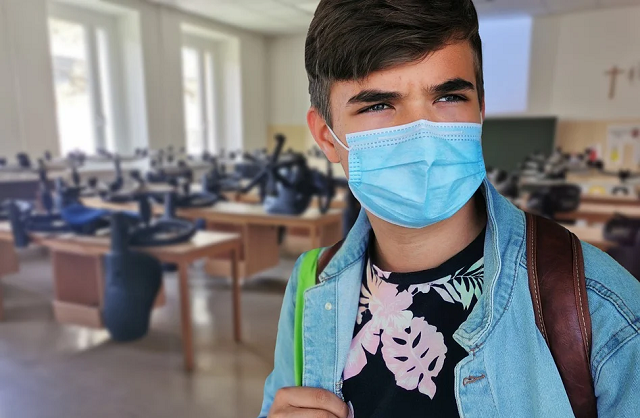
Yaron Neudorfer
The academic year is upon us with record registrations including a 30% rise. For the heads of institutions of higher education, there is another challenge that may not have been considered – dealing with dropout.
The leap in registration for higher education stems from causes related to Covid-19, such as the inability to travel abroad and lack of employment for young people. This should be considered as an opportunity which should be exploited in order to provide tools for young people to integrate into the future job market, train them for new professions, and reduce social and economic disparities amongst different population groups.
Will you offer us a hand? Every gift, regardless of size, fuels our future.
Your critical contribution enables us to maintain our independence from shareholders or wealthy owners, allowing us to keep up reporting without bias. It means we can continue to make Jewish Business News available to everyone.
You can support us for as little as $1 via PayPal at office@jewishbusinessnews.com.
Thank you.
In the coming year when most of the learning will be online, i.e. no direct contact between the students and their peers and their lecturers, without an institutional system able to offer support to the student – the risk of dropping out is much greater.
Dropout from higher education can have a broad devastating significance for years to come. If we will not be able to preserve, train and accompany the students as well as provide them with appropriate tools, we might damage their social mobility and their ability to integrate into the work force in the future. Dropout in these days of a pandemic and economic crisis will have far-reaching consequences in the long run as well.
The most dramatic damage is the widening of the social gaps in Israel and the deadly damage to the periphery. Dropouts from undergraduate studies are significantly more common in the lower socio-economic strata, first-generation higher education, minorities, the periphery, etc.
In the world and in Israel there are several excellent programs preventing dropout in the first year of undergraduate studies. They rely on an early intervention ability, identifying difficulties at early stages by providing specified assistance, providing educational tools etc. In places where the Social Impact Bond to prevent student dropout program has been implemented, there has been major success and now the heads of the academic institutions must work intensely to implement it so that the students will not be “just another number” in the academic institution, especially in this uncertain period, but will receive personal, individual treatment leading them to a better future.
These moves will prevent the “silent dropout” phenomenon – students who are slowly losing the desire to learn, or they lack the tools to continue, they lack the specified support, the personal contact, and ultimately they stop coming to classes and meetings. The institutions may only discover at the end of the year that these students have dropped out of school. Locating students who are defined as at risk of dropping out early in their studies is the basis for preventing dropout.
Israel in order to thrive as a start-up nation depends on an educated skilled work force. In normal times, barriers to the acquisition of higher education can include socio-economic background factors, language gaps and motivation.
But in these days of Covid-19, where some of the students are too young, possibly emotionally immature for academia combined with the loss of personal contact, online studies only and the inability to “touch” the student –all pose an additional significant challenge laid out before the institutions of higher education.
I fear that those who dropout in these days of a health and economic pandemic will incur a heavier price than in normal times. A price that will harm, beyond the personal level, the national resilience and social cohesion as well, widening the social gaps in Israel.
The heads of the academic institutions are faced with a complex task. I call upon them and the government to adopt an active policy of prevention dropout from the academic system. It is the right way to protect the future generation, to prepare it for an employment future that will reduce social disparities and ensure that in the midst of the health and economic crisis, these students will ultimately be able to integrate into the workforce and the economic markets.




